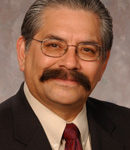AUSTIN—Bills pending in the Texas House Investments and Financial Services Committee could crack down on abuses by payday and auto-title lenders and help protect vulnerable Texans from becoming trapped in a cycle of debt, proponents of the bills insist.
Republican lawmakers introduced all five bills, underscoring “the fact that protecting the poor is a bipartisan issue,” said Kathryn Freeman, CLC public policy director.
 Kathryn Freeman“I am hopeful that this is the session we put some meaningful parameters around this industry,” Freeman said. “We believe they can make a good profit without exploiting the poor.”
Kathryn Freeman“I am hopeful that this is the session we put some meaningful parameters around this industry,” Freeman said. “We believe they can make a good profit without exploiting the poor.”
If borrowers cannot pay off the entire amount of a payday or auto-title loan in two to four weeks, they must pay high fees to roll over the loan, and more than half—57 percent—cannot repay the loan in two weeks, the CLC reports. High fees accompany each rollover, and payments do not reduce the principal. Installment loans keep borrowers in debt at effective annual rates of 500 percent or higher.
One key bill pending in committee, HB 2808 by Rep. James White, R-Woodville, is modeled on ordinances 22 Texas cities passed to regulate payday and auto-title lending.
Payday, auto-title lending bill
HB 2808 caps the sum of all fees, principal, interest and other amounts due for a payday loan at 20 percent of the consumer’s gross monthly income. For an auto-title loan, it sets the limit at the lesser of 3 percent of the consumer’s gross annual income or 70 percent of the vehicle’s retail value.
Under the bill, a single-payment payday loan cannot be refinanced more than three times, and a multiple-payment loan cannot be rolled over or renewed more than four times. In either case, the amount of each payment must be used to repay at least 25 percent of the principal of the original debt.
The bill also requires credit service organizations to disclose in writing—in both English and Spanish—fee schedules and refinancing charges.
Sign up for our weekly edition and get all our headlines in your inbox on Thursdays
If a city already has in place ordinances regulating payday and auto-title lenders and their provisions conflict with HB 2808, the more stringent regulation applies.
Cities began adopting ordinances after the Texas Legislature in 2011 failed to pass a bill that would have placed limits on loans based on family income, restricted rollovers or renewals and allowed borrowers to make partial payments toward the principal loan amount.
“HB 2808 takes the city ordinances statewide, essentially extending to all Texans the same protections currently enjoyed by 7.6 million Texans,” Freeman said.
Loan database
Another bill, HB 3047 by Rep. Tom Craddick, R-Midland, former speaker of the House, would establish a loan database so regulators can ensure lenders are not refinancing loans more times than the law permits. It also increases the criminal penalty for violations.
In a March 15 editorial the Dallas Morning News praised HB 2808 and HB 3047 as evidence of “positive momentum” on an important issue.
“More than 20 Texas cities have rules modeled on the Dallas ordinances; now the need for tougher laws is grabbing the attention of Republican lawmakers,” the editorial states.
“Thanks to a coalition of churches, nonprofits and major Texas cities, legislators have heard countless stories of lending abuses involving their constituents. Austin needs to listen to these voices and take them as a mandate for tougher rules that support those already passed by the cities.”
Three other bills related to payday and auto-title lending remain in the Texas House Investments and Financial Services Committee:
• HB 2166 by Rep. Dan Flynn, R-Canton, chair of the committee, sets 35 percent of a consumer’s gross monthly income as the limit for a single-payment payday loan and 25 percent as the limit for a multiple-payment payday loan, and it says a loan cannot be refinanced more than four times.
For an auto-title loan, it sets the limit at the lesser of 7 percent of the consumer’s gross monthly income for a single-payment loan, 30 percent for a multiple-payment loan or 70 percent of the vehicle’s retail value.
“HB 2166 is a step in the right direction, and we look forward to working with Rep. Flynn to ensure that the poor are adequately protected from the debt trap,” Freeman said.
Short-term consumer loans
• HB 3824 by Rep. Giovanni Capriglione, R-Keller, provides additional regulation of short-term consumer loans, including the requirement for an occupational license, and add provisions subject to a criminal penalty. The bill regulates interest computation methods and interest charges on secured loans.
• HB 3873, also by Capriglione, expands the duties and responsibilities of the consumer credit commissioner.
Freeman expressed concern about one bill, SB 1673, introduced by Sen. Don Huffines, R-Dallas, that could reverse municipal ordinances regulating payday and auto-title lenders.
In part, the bill states, “A local government shall not adopt or enforce a local ordinance, rule or regulation that conflicts with, is more stringent than, or is inconsistent with a state law, rule, regulation, permit or license.”
“We are concerned about any bills that would preempt the city ordinances, especially if the legislature is not going to act on a statewide basis to protect the poor and vulnerable,” Freeman said.
This article is based in part on research by Leah Holder, a public policy research intern with the Texas Baptist Christian Life Commission and the Baptist Standard, made possible by a grant from the Christ is Our Salvation Foundation of Waco. She is a Phi Beta Kappa graduate of the University of Texas at Austin and is a student in the University of Texas School of Law.
The Texas Baptist Christian Life Commission issued the folllowing Advocacy Alert at noon on April 20:
Please make calls to the following offices:
Rep. Sarah Davis (512-463-0389)
Rep. Lyle Larson (512-463-0646)
Rep. Todd Hunter (512-463-0672)
The CLC is requesting these members help with two bills related to payday lending:
1. Set HB 411 for the House Calendar.
HB 411 would limit the telemarketing abilities of payday lenders. We need to protect consumers from unsolicited calls from payday lenders attempting to trap them in unaffordable loans.
These legislators are members of the House Calendars Committee. This bill has been held in the Calendars committee for several weeks. We need to know which member is holding this bill and we ask that they remove their hold and set HB 411 for the House Calendar.
2. Vote HB 2273 out of the General Investigating and Ethics Committee
HB 2273 prohibits state agencies from contracting with payday lending locations. The North Texas Tollway Authority (NTTA) contracts with Ace Cash Express as an acceptable location to pay toll fees. We are concerned that folks unable to pay their toll fees will then be encouraged to take out a payday loan. The state agencies should not contract with payday lenders.
These legislators are members of the House General Investigating and Ethics Committee. We ask that these members vote HB 2273 out of committee.














We seek to connect God’s story and God’s people around the world. To learn more about God’s story, click here.
Send comments and feedback to Eric Black, our editor. For comments to be published, please specify “letter to the editor.” Maximum length for publication is 300 words.